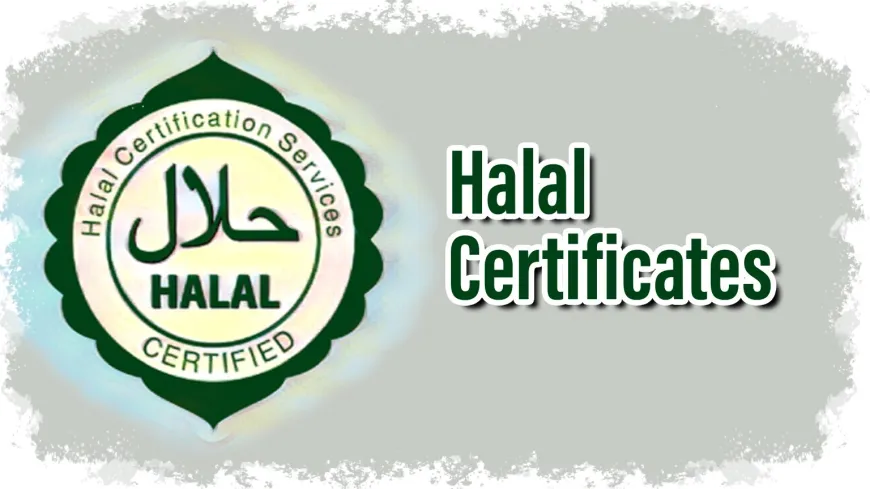Halal certification is essential for businesses that want to serve the Muslim community in the UK. It ensures that products meet Islamic dietary laws and ethical standards. With the growing demand for halal products, many businesses seek certification to build trust and expand their customer base. This guide explains what Halal Certifications UK is, how to obtain it, and why it matters.
What Is Halal Certification?
Halal certification confirms that a product or service follows Islamic guidelines. The term “halal” means “permissible” in Arabic, referring to food, drinks, cosmetics, and even pharmaceuticals. The certification process ensures that ingredients, preparation methods, and handling meet Islamic laws.
Why Is Halal Certification Important?
Halal certification is crucial for businesses that cater to Muslim consumers. It provides assurance that products are safe, ethical, and prepared according to Islamic teachings. Many supermarkets, restaurants, and manufacturers in the UK now offer halal-certified options to meet customer needs.
Key Benefits of Halal Certification
- Builds Consumer Trust – Halal labels help Muslim consumers make informed choices.
- Expands Business Opportunities – Certified products attract a wider market, including international customers.
- Ensures Ethical Standards – Halal certification follows humane treatment of animals and high hygiene levels.
- Complies with Religious Requirements – Many Muslims strictly follow halal dietary laws, making certification essential.
What Products Need Halal Certification?
Several industries benefit from halal certification. While food is the most common, other sectors also require approval.
1. Food and Beverages
- Meat and poultry
- Dairy products
- Baked goods
- Packaged foods
- Beverages (excluding alcohol)
2. Cosmetics and Personal Care
- Skincare products
- Makeup
- Soaps and shampoos
- Toothpaste
3. Pharmaceuticals and Supplements
- Medicines
- Vitamins
- Herbal supplements
4. Restaurants and Catering
- Fast food chains
- Fine dining restaurants
- Catering services
Any business that deals with these products can apply for halal certification to ensure compliance.
How to Get Halal Certification in the UK
Obtaining halal certification involves several steps. Businesses must follow strict guidelines to meet the standards.
1. Choose a Recognised Halal Certifying Body
The UK has several organisations that provide halal certification. These include:
- Halal Food Authority (HFA)
- Halal Monitoring Committee (HMC)
- European Halal Development Agency (EHDA)
Each certifier has different requirements and procedures.
2. Submit an Application
Businesses must apply for certification by providing details about their products, ingredients, and production methods.
3. Inspection and Audit
The certifying body inspects the premises, raw materials, and production process to ensure compliance with halal standards.
4. Testing and Verification
Some certifiers conduct lab tests to check for non-halal ingredients, such as alcohol or animal by-products.
5. Certification Approval
Once a business meets all requirements, it receives an official halal certificate. This certificate must be renewed regularly to maintain validity.
Halal Certification Labels in the UK
Consumers rely on halal labels to identify permitted products. Certified businesses display a halal logo on their packaging, helping customers make confident choices. Each certifying body has a unique logo, so it’s important to recognise reputable authorities.
Common Misconceptions About Halal Certification
Many people misunderstand halal certification. Here are some common myths and facts.
1. Halal Certification Is Only for Meat
While halal certification is essential for meat, it also applies to dairy, cosmetics, and pharmaceuticals.
2. All Vegetarian Products Are Automatically Halal
Not all vegetarian products are halal. Some may contain alcohol-based flavourings or cross-contamination risks.
3. Halal Certification Is Only for Muslims
Many non-Muslims choose halal products due to ethical and hygiene standards. Halal meat is often considered cleaner and healthier.
4. Getting Halal Certification Is Complicated
The certification process is straightforward when businesses follow proper guidelines and choose a recognised certifier.
How to Identify Genuine Halal-Certified Products
With the rise of halal products, some businesses falsely claim to be halal. Here’s how to verify authenticity.
- Look for a Trusted Halal Logo – Check for certification from reputable bodies like HFA or HMC.
- Visit the Certifier’s Website – Most certifiers list approved businesses online.
- Ask for Proof – Customers can request certification documents from businesses.
- Check Ingredients – Avoid products with non-halal additives, such as gelatin or alcohol.
Halal Certification and Global Markets
Halal certification is not just important in the UK; it is recognised worldwide. Many businesses seek certification to expand into Muslim-majority countries like Saudi Arabia, UAE, and Malaysia. The global halal market is growing rapidly, offering huge opportunities for businesses that comply with halal standards.
For more information visit Website
Final Thoughts
Halal certification plays a vital role in ensuring products meet Islamic dietary laws and ethical standards. It provides consumers with confidence while helping businesses expand their market reach. Whether you run a restaurant, a food manufacturing company, or a cosmetics brand, halal certification can help you gain customer trust and grow your business.
If you are considering halal certification, choose a recognised certifier and follow the necessary steps to ensure compliance. A halal-certified business not only serves the Muslim community but also upholds high ethical and hygiene standards, benefiting all consumers.

